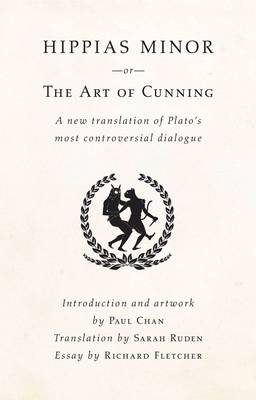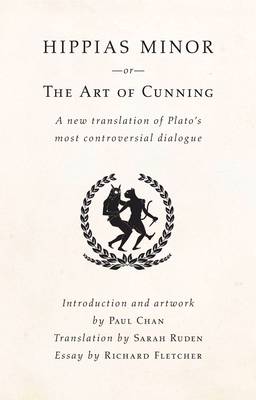
En raison d'une grêve chez bpost, votre commande pourrait être retardée. Vous avez besoin d’un livre rapidement ? Nos magasins vous accueillent à bras ouverts !
- Retrait gratuit dans votre magasin Club
- 7.000.000 titres dans notre catalogue
- Payer en toute sécurité
- Toujours un magasin près de chez vous
En raison de la grêve chez bpost, votre commande pourrait être retardée. Vous avez besoin d’un livre rapidement ? Nos magasins vous accueillent à bras ouverts !
- Retrait gratuit dans votre magasin Club
- 7.000.0000 titres dans notre catalogue
- Payer en toute sécurité
- Toujours un magasin près de chez vous
Hippias Minor or the Art of Cunning
A New Translation of Plato's Most Controversial Dialogue
Livre broché | Anglais
23,95 €
+ 47 points
Description
A provocative dialogue about art as a form of wrongdoing
One of Plato's most controversial dialogues, Hippias Minor details Socrates' claims that there is no difference between a person who tells the truth and one who lies, and that the good man is the one who willingly makes mistakes and does wrong. But what if Socrates wasn't merely championing the act of lying--as the dialogue has been traditionally interpreted--but, rather, advocating the power of the creative act?In this new translation by Sarah Ruden, Hippias Minor is rendered anew as a provocative dialogue about how art is a form of wrongdoing. The accompanying introduction by artist Paul Chan and essay by classicist Richard Fletcher argue that an understanding of the dialogue makes life more ethical by paradoxically teaching one to be more cunning.
Spécifications
Parties prenantes
- Editeur:
Contenu
- Nombre de pages :
- 144
- Langue:
- Anglais
Caractéristiques
- EAN:
- 9781936440894
- Date de parution :
- 11-07-15
- Format:
- Livre broché
- Format numérique:
- Trade paperback (VS)
- Dimensions :
- 150 mm x 226 mm
- Poids :
- 181 g

Les avis
Nous publions uniquement les avis qui respectent les conditions requises. Consultez nos conditions pour les avis.





